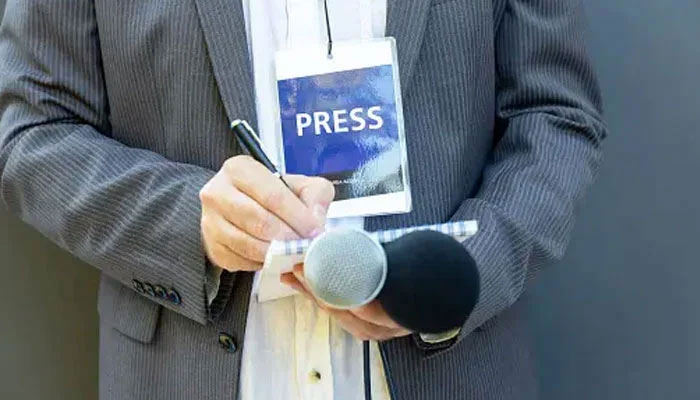Choose the truth
On this World News Day (today, September 28), the global media industry is making a concerted effort to reclaim its integrity
There was a time when the morning newspaper, rolled tightly and tossed onto doorsteps, marked the start of the day. From pop culture to cartoons, this ritual was iconic – a moment when people paused to catch up on world affairs, trusting the ink-stained pages to provide accurate and well-researched information. Today, however, the world of journalism looks very different. As the digital age has expanded, the media landscape has fragmented, giving people more ways to consume news but also more reasons to doubt its authenticity. On this World News Day (today, September 28), the global media industry is making a concerted effort to reclaim its integrity. The theme, ‘Choose Truth’, offers a crucial message in these turbulent times. This event, organized by the World Association of News Publishers (WAN-IFRA) and the Canadian Journalism Foundation, is a stark reminder that fact-based journalism – the bedrock of a functioning democracy – is under siege.
In recent years, journalism has been hit hard by the rise of the internet. On the one hand, digital platforms have made news reporting instant and accessible. But on the other, many of these same platforms have allowed sensationalism, misinformation, and click-bait content to thrive. For some, the goal is no longer about reporting facts but about driving clicks, shares, and viral content – metrics that reward outrage and controversy, rather than the truth. As misinformation spreads unchecked, fueled by social media, public trust in journalism continues to erode. This is a global crisis, and Pakistan is no exception. Credible journalists and established media outlets, once seen as arbiters of truth, have often found themselves entangled in the chaos of misinformation. In the process, actual journalism has suffered greatly.
Social media platforms have exacerbated these problems. For a while, X (formerly Twitter) provided journalists a space to share breaking news and offer insights to their audiences. Verification badges helped distinguish credible voices from the noise. But the platform’s shift to a subscription-based verification model under its new ownership has blurred these lines. According to the Pew Research Center, over half of US adults (54 per cent) report getting their news from social media. With such a large portion of the population consuming news in the digital space, the risks of misinformation multiply. Even seasoned journalists are not immune, sometimes bypassing the rigorous checks of their traditional outlets in pursuit of building personal brands and going viral. When fact-checking is drowned out by bot armies pushing a partisan narrative, the truth becomes an afterthought. In this context, the theme of ‘Choose Truth’ could not be more timely. It calls on people to consciously select credible news outlets for their information, to engage with the media critically, and to demand accountability from both reporters and the platforms they use. Journalists, too, must uphold their end of the bargain. World News Day reminds us that the choice, ultimately, is ours. Will we stand by journalism as a force for good, or will we allow it to be co-opted by the forces of sensationalism and disinformation?
-
 Kash Patel Fires FBI Officials Behind Trump Mar-a-Lago Documents Probe, Reports Say
Kash Patel Fires FBI Officials Behind Trump Mar-a-Lago Documents Probe, Reports Say -
 Martin Short's Daughter Katherine's Death Takes Shocking Turn As Terrific Details Emerge
Martin Short's Daughter Katherine's Death Takes Shocking Turn As Terrific Details Emerge -
 Patrick Dempsey Reacts To Tragic Death Of His 'Grey's Anatomy' Co-star Eric Dane
Patrick Dempsey Reacts To Tragic Death Of His 'Grey's Anatomy' Co-star Eric Dane -
 Sidney Crosby Injury News Shakes Penguins After Olympic Tournament
Sidney Crosby Injury News Shakes Penguins After Olympic Tournament -
 Yankees Honour CC Sabathia With No. 52 Retirement This September
Yankees Honour CC Sabathia With No. 52 Retirement This September -
 Cuban Government Says Boat Full Of Armed Men Fired On Border Guards, Killing 4
Cuban Government Says Boat Full Of Armed Men Fired On Border Guards, Killing 4 -
 Lily Collins Faces Intense Pressure After Landing Audrey Hepburn Role: Source
Lily Collins Faces Intense Pressure After Landing Audrey Hepburn Role: Source -
 FIFA World Cup Security Concerns Spike After Recent Cartel Violence In Mexico
FIFA World Cup Security Concerns Spike After Recent Cartel Violence In Mexico -
 Shamed Andrew Ordered To Curb Hobby: ‘It’s A Bad Look’
Shamed Andrew Ordered To Curb Hobby: ‘It’s A Bad Look’ -
 Cardi B 'no-nonsense' Move: Why She Distanced Herself From Stefon Diggs? Source
Cardi B 'no-nonsense' Move: Why She Distanced Herself From Stefon Diggs? Source -
 Metallica Announce 2026 ‘Life Burns Faster’ Las Vegas Sphere Residency
Metallica Announce 2026 ‘Life Burns Faster’ Las Vegas Sphere Residency -
 ‘From Dating Scams To Fake Lawyers’: OpenAI Bans ChatGPT Accounts Over Misuse
‘From Dating Scams To Fake Lawyers’: OpenAI Bans ChatGPT Accounts Over Misuse -
 Amy Schumer Reveals She Pushed Through Illness Mid-performance: 'Proud I Made It'
Amy Schumer Reveals She Pushed Through Illness Mid-performance: 'Proud I Made It' -
 Shamed Andrew Can No Longer Take The ‘heat’ Of His Actions
Shamed Andrew Can No Longer Take The ‘heat’ Of His Actions -
 Royals Adamant To Show Andrew Is ‘just One Bad Apple’
Royals Adamant To Show Andrew Is ‘just One Bad Apple’ -
 Jessie Buckley Reveals Why BAFTA Win Felt Extra 'special' With Cillian Murphy
Jessie Buckley Reveals Why BAFTA Win Felt Extra 'special' With Cillian Murphy




